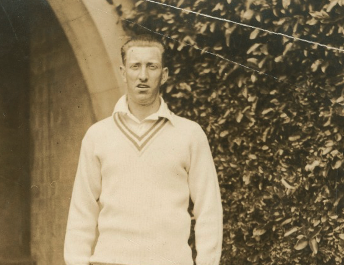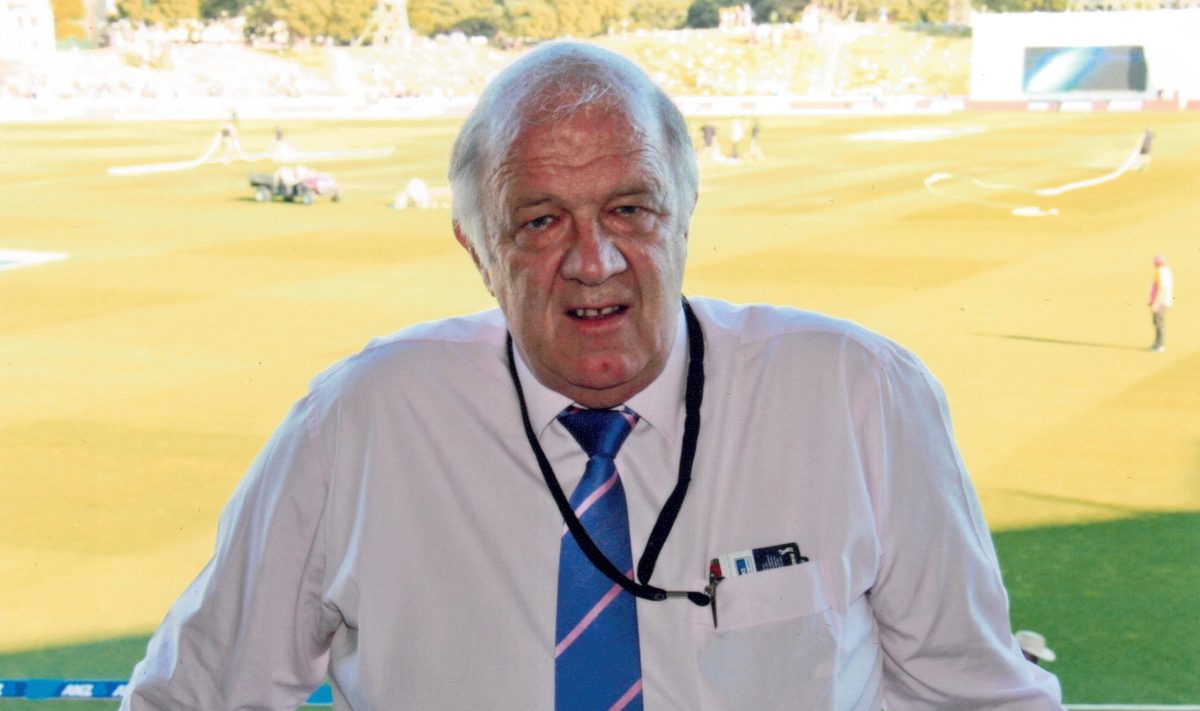
Former Australian Test cricketer Frank Ward made his mark on Bermagui when he lived in the area between 1946 and 1954. Photo: Supplied.
Of the 70-odd books that cricket historian Ronald Cardwell has written, none have been as intriguing as putting together the life story of former Australian Test cricketer Frank Ward.
Red herrings, dead ends, a name change, no birth certificate and visiting the site of the violent murders of a grandmother and aunt are just some of the things Mr Cardwell encountered while writing In Search of Frank Ward…. Over the past nine years doing research in NSW, South Australia and Victoria, he has proved a school’s records to be incorrect and the early history of the Bermagui Fishing Co-operative to be incomplete.
The elusive spin bowler had lived in the Bermagui area between 1946 and 1954.
Thought to have been born in 1906, Mr Ward grew up in the St George area of Sydney. There he played for the St George District Cricket Club with Test players Don Bradman and Alan Fairfax. Like them, he dreamed of playing for Australia but to do so he had to be selected to play for NSW.
He was unsuccessful so he moved to Queensland where again he did not get picked. Next, he tried his luck in Victoria. Again, he was not selected. In the intervening years he played rugby union and rugby league for St George while running six grocery stores near where he lived.
It was six seasons later that he was selected for the South Australian state team. Mr Ward had an outstanding year in his first season of top-level cricket. He played three Tests against England in the 1936-37 season and toured England in 1938. Mr Ward also represented South Australia in rugby union.
His military service during World War II was no less remarkable. He was one of the Rats of Tobruk who famously defended their garrison from German and Italian forces for eight months. The Australian-led Allied garrison stopped the Germans advancing to Egypt in 1941.
Mr Ward was affected by the war and perhaps other personal issues and sought a quieter life. That is how he came to move to the Far South Coast.

Of all the books that cricket historian Ronald Cardwell has written, In Search of Frank Ward… has been the most intriguing to research. Photo: Supplied.
For a brief time he worked on Merriwinga dairy farm in Tilba Tilba for Rob Turner. Money was tight and Mr Turner could not pay Mr Ward for his work. Mr Ward negotiated the subdivision of some five acres of land in the area known today as Serendip Lane on the peaceful shores of Wallaga Lake.
There he built three cabins. Years later, when the cabins were sold to the King family, they became known as Kings Cabins.
The quietly spoken Mr Ward went on to become the founding director, shareholder and manager of the Bermagui Fishermen’s Co-operative. “It was February 1946 and life was getting back together on the Far South Coast of NSW,” Mr Cardwell said.
The co-op was a “brainwave”, resident Murray Douch told Mr Cardwell on one of several research trips to Bermagui. Mr Douch told Mr Cardwell that “in many ways it put Bermagui on the map as far as fishing was concerned following the departure of the big game fishermen before the war”.
Despite being a quiet person who enjoyed fishing and his own company, Mr Ward became very involved in the community. He hired out the cabins he had built by the lake and coached the local cricket and rugby teams. Local newspapers regularly reported on his deeds in cricket and rugby league.
He later moved to Brooklyn on the Hawkesbury River. There he built oyster farms and sold the oysters locally.
Sadly, Mr Ward died in a doss house in Sydney in 1974.
Thanks to Mr Cardwell’s persistence in finding everything he could about the cricketer, Frank Ward’s name will be forever linked to the Bermagui Fishermen’s Co-op. Bermagui now knows that its cricket and football clubs’ performances were immensely boosted in the years Mr Ward lived in the area.
In Search of Frank Ward… will be published by the end of the year. Mr Cardwell is looking for photographs of Frank Ward, Bermagui and the fishing co-operative between 1946 and 1954. Please contact Mr Cardwell on 0432 699 937 or email [email protected]







